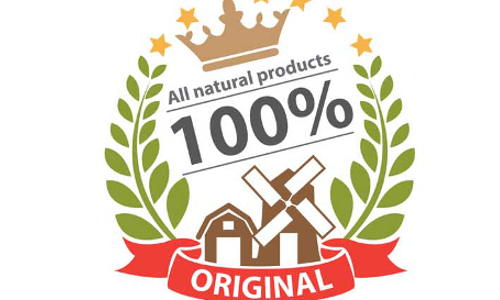

Walk through your local grocery store these days and you’ll see the words “all natural” emblazoned on a variety of food packages. The label is lucrative, for sure, but in discussing the natural label few have remarked on what’s really at stake—the natural ingredients and the companies themselves.

If you take a look at some of the favorite organic and natural food brands, you’ll see they’re owned by some of the largest conventional companies in the world. Coca-Cola owns Odwalla and Honest Tea. PepsiCo owns Naked Juice. General Mills owns Lara Bar. Natural and organic food acquisitions aside, Coca-Cola, PepsiCo and General Mills all opposed California’s GMO Proposition 37 that would require GMO (genetically modified organism) food labeling. Today, some of those companies touting an all-natural list of grains and sugars can be seen changing the ingredients in their natural food products as the natural foods’ distribution channels are pushed to larger and larger markets.
Recently, in a class action consumer-fraud lawsuit, Kashi agreed it would stop using “all natural” and “nothing artificial” for its line of cereal products, which, according to plaintiffs, contained unnatural ingredients like pyridoxine hydrochloride, calcium pantothenate and soy oil processed with hexane, a byproduct of gasoline refining in its line.
Kashi’s use of “natural” ingredients wasn’t in question in 1999 when it made nearly $25 million in sales. But in 2000 Kellogg’s purchased Kashi and less than a decade later it was the No. 1 natural foods brand making nearly $600 million in sales. The rise in class-action lawsuits against the “natural” label comes in part because brands like Kashi have ballooned in sales—in other words, there’s no money to be found in a smaller, natural company. Yet Kashi rose to the top while continuing to tout its “all natural” ideology of which David DeSouza, Kashi’s former general manager (a defendant in the case and formerly with Kellogg’s for 19 years prior to joining Kashi), was so fond.
As part of the settlement for its use of unnatural ingredients, Kellogg’s is creating a $5 million settlement fund for California customers who purchased the products containing the specific ingredients.
Natural food buyouts have become second nature to the food industry as companies like Kellogg’s continue to diversify their portfolios and latch on to the popularity of natural and organic foods. And while a downgrade of some ingredients is one thing in some cases, companies have undergone a complete 180 from using organic and natural ingredients by opting for conventional or GMO ones.
When Brendan Synott and Kelly Flately started Bear Naked, they hand-packed granola and distributed it to bed-and-breakfasts themselves. Kellogg’s purchased Bear Naked in a $122 million deal and it soon became apparent that its Kashi products were no longer as natural as its humble beginning. Kellogg’s agreed to remove “100% natural” and “100% pure and natural” from its Bear Naked labels in a suit similar to Kashi, which faulted its ingredients. Kellogg’s eventually settled for $325,000.
Still, when Kashi was criticized by the Cornucopia Institute for its use of GMO ingredients in April 2012, Kashi released a statement complaining about the organic food supply, writing: “A major challenge we face in North America is that over 80% of many crops, including soy, are grown using GMOs.” It added: ” Given the fact that only 0.7% of US cropland is organic, it’s unfortunate that Cornucopia failed to recognize Kashi’s significant contribution to supporting organic agriculture and our ability to impact future change.”

 233k
233k  41k
41k  Subscribe
Subscribe 